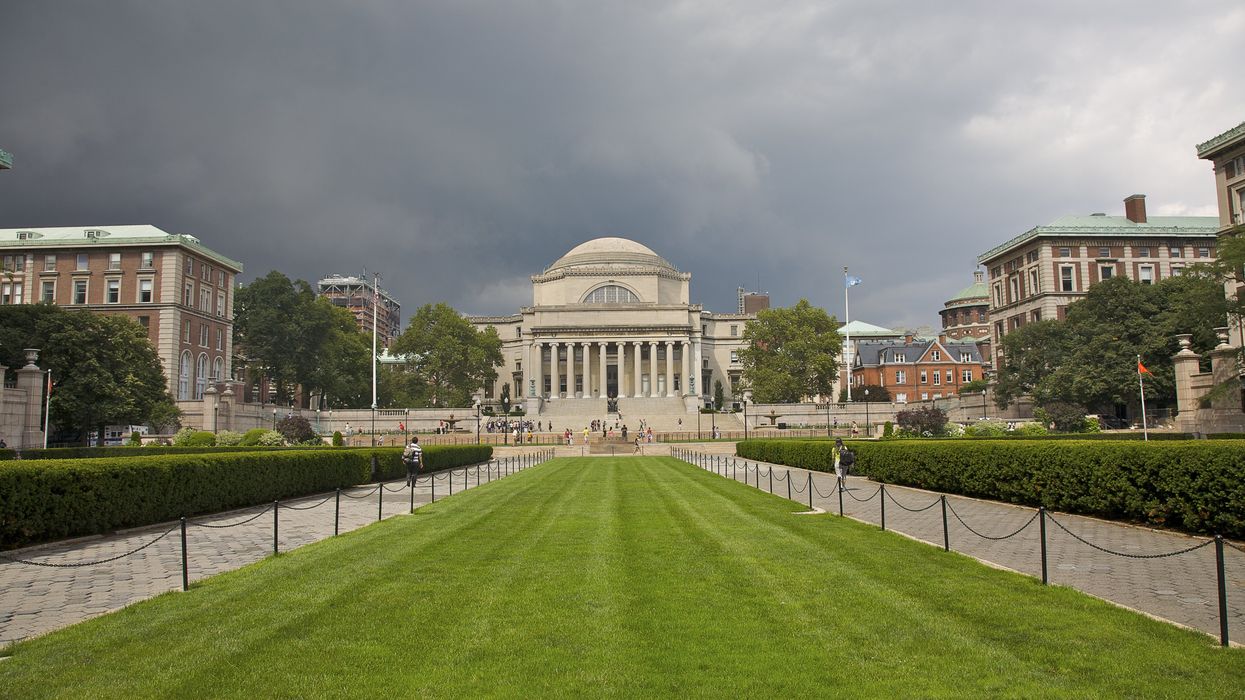Breslin is the Joseph C. Palamountain Jr. Chair of Political Science at Skidmore College and author of “A Constitution for the Living: Imagining How Five Generations of Americans Would Rewrite the Nation’s Fundamental Law.”
This is the latest in a series to assist American citizens on the bumpy road ahead this election year. By highlighting components, principles and stories of the Constitution, Breslin hopes to remind us that the American political experiment remains, in the words of Alexander Hamilton, the “most interesting in the world.”
Standing at the crossroads can be intensely unsettling, and it seems we’re all there, all the time. Politically, economically, socially, technologically, culturally, diplomatically, morally, you name it, this moment has surely tested our navigational skills and sowed grave doubt as to which road we should collectively take.
Higher education, my professional home, is at just such a crossroads. Last week, Pamela Paul, opinion columnist for The New York Times, (re)joined the chorus. Her thoughtful and provocative essay tackled the question of whether a college or university should “take a stand” on any political issue. She answered with a resounding no.
It’s not as simple as that. To be sure, college and university leaders are reluctant to stake a position on any issue that may offend a segment of their diverse community, and with good reason. Reputations formed over centuries suffer. Think Harvard. Millions and millions of dollars disappear overnight. Think Penn. Applications decline, protests erupt, students feel unsafe and the campus experiences trauma. These are not enviable outcomes. Neutrality on the part of the administration is a reasonable and even wise choice in these times.
But neutrality also has its vices. There is considerable irony in any institution whose sole mission is the search for truth while remaining neutral on the pressing issues of the day. The thoughtful interrogation of good and bad ideas, of controversial and settled principles, is at the heart of every school’s curriculum. Indeed, the marketplace of ideas requires that our colleges be laboratories for fulsome debate. We seem to have forgotten that. The extreme right sneers at the crucial aim of colleges to broaden student learning beyond the white, Eurocentric canon, while the extreme left bars the campus gate from hearing conservative ideas and right-wing voices. No wonder many are calling on colleges and universities to provide a freer, more open and liberated public square.
There is also an historically troublesome component to neutrality. For most of American history, the college (and then the university) served to develop each student’s moral and ethical character (initially through religious instruction, later through secular “ provocation ”). Daniel Coyt Gilman, founding president of Johns Hopkins University, wrote that college must never be “merely a place for the advancement of knowledge or for the acquisition of learning; it will always be a place for the development of character.” Teddy Roosevelt’s words are even more ascendant: “to educate a man in mind and not in morals is to educate a menace to society.” The college itself is responsible for fostering integrity, wisdom, good sense, rationality, respect, diversity, pluralism and, yes, creativity, individualism, and difference. That hasn’t changed.
Perhaps most disquieting is that neutrality downplays every college’s vital responsibility to cultivate serious citizens. Civic engagement is born in college. A quality education will open students’ eyes to the injustices, the prejudices, and the inequalities that will stir their souls and awaken their hearts. No other institution in America is as successful at educating for a shared public purpose. No other institution is as effective in forming the habits of mind that are essential to self-rule. No other institution is as capable of promoting the search for truth and the corresponding fulfillment of the common good. And that’s a good thing.
For inspiration, readers of this column will know that I inevitably turn to the Founding generation: “Men such as George Washington, Benjamin Franklin, Benjamin Rush, Noah Webster, James Madison, and Thomas Jefferson did not consider the principles on which the American Constitution was formed, and meant to sustain, as being ‘neutral.’ Rather, [their] vision was cognizant of the educative and potentially transformative ambitions of liberal democracy.” Educated citizens were essential to realizing the promise of a modern liberal democracy, the Founders insisted. Where were these liberal democrats to get their education? In college.
But even if the Founding holds no particular sway over you, consider the findings in a recent study on the threat of authoritarianism. The authors conclude that “[h]igher education promotes independent thought, respect for diversity, and inquisitive assessment of evidence — all of which can counteract the unquestioning deference to authority.” Even the more quantitatively inclined may be persuaded that “ education raises the benefits of civic engagement ” and provides powerful weapons against the drift towards dictatorship.
None of this is simple. As we search for some middle ground, we may have to reinvent the modern college to be more cognizant of its influence as a moral authority. We may have to reconceptualize the university away from in loco parentis. Though I don’t buy Paul’s doomsday scenario that colleges and universities are “putting their futures at risk,” I will concede that they are at an inflection point — a crossroads — and that some of the features that made these unique bodies so treasured may have to change.
Abraham Lincoln probably said it best: “The philosophy of the school room in one generation will be the philosophy of the government in the next.” America’s colleges and universities have always been at the vanguard of the discovery and dissemination of truth, the very fuel needed for a robust and just democracy. I’d like to think we can preserve that link.




















Trump & Hegseth gave Mark Kelly a huge 2028 gift